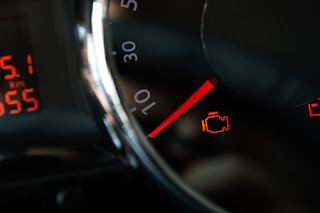One of the worst parts of our day at Oakdale Collision is having to tell someone their insurance totaled out their vehicle. Purchasing a new car can be a big stressful ordeal. It puts a lot on the line like your credit score, financials, and long-term happiness if you purchase the wrong thing. Sometimes, it’s hard to know what vehicle is the right vehicle, until it’s in front of you. We suggest thinking long and hard about what you need, and what you want out of your next vehicle.
The financial part is often the most worrisome step towards a new car. If your insurance is totaling out your current vehicle, make sure that you negotiate on your behalf, and that your payout is fair value. Before you set out to test drive your dream car, you need to identify what your budget is, and which type of sale you’d like to do, either private or through a dealership. You will need to identify how much you are willing to spend, and if you are planning on buying outright, or using a loan from either a bank or a dealership. If you go the loan route, decide how much money you are willing to allocate towards a monthly payment.
Paint a picture, albeit a broad one, of your ideal must haves and must nots in the next car you bring home. This can be little things, like auto start or heated seats, to the big items like being AWD or an included tow package. Create a list of your absolutes before you start searching online. This will help you cross potentials off the list, and preemptively thinking about what you absolutely need will allow you to quickly sort through the thousands of cars on the market. Then, once you know the type and trim package you desire, price check it! Look up what the industry norm is, and what people in your area are paying for the same type of vehicle. Keep that at the ready for when you visit the dealer or private party you intend to purchase though.
Absolutely always test drive the car. This is one of the most important parts of the car buying process. You need to know the depth of what you are getting yourself into, and test driving the car will allow you to experience what day to day life is going to be like. You’ll typically be driving the car, but how does the backseat feel? Can you properly use all the mirrors in the car and do you like your visibility? Is there road noise? How is the stereo? Do you feel too close to the steering wheel? Is there enough cargo space? Make sure your salesman has time to spare and take it for a thorough test. Drive on the freeway, find a hill, do a couple brake checks, cruise around and ensure you are positively in love with the vehicle before you entertain the idea of purchasing the vehicle. You also want to have a mechanic on call, for a checkup. It is always a good idea to make sure that the vehicle is mechanically sound.
A new car is an emotional and occasionally expensive venture, but you can save yourself a lot of stress by being proactive and getting your intention set before you start looking. By knowing what you want, you don’t have room for a salesman to upsell you, or to miss a great opportunity by overlooking an older model that has all your absolute must have items. Don’t let anybody push you into anything you aren’t interested in and know that you don’t have to buy anything you don’t love.


